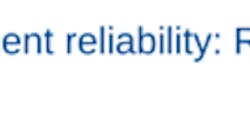If you were asked to tell a story about a key learning moment in your life, one that snuck up on you without realizing it, most if not all of us would have plenty of stories ready for the telling.
One moment like that for me took place about two decades ago, on Father’s Day in 1993, watching the Jordan Bulls sink a last-second shot to win the NBA Finals over the Charles Barkley-led Phoenix Suns. Having been born and raised in the Windy City by two native Chicagoans, it was pretty much a given that we’d celebrate the holiday by watching the game.
A few things stuck me while watching one of the final plays, the 3-point shot by John Paxson with four seconds to go that gave the Bulls a one-point win. On that play, each Bulls member on the floor got to touch the ball – Jordan inbounded to B.J. Armstrong, then it went back to Jordan, to Scottie Pippen, to Horace Grant, and finally to a wide-open Paxson (with Bill Cartwright on the bench).
The play took 10 seconds to execute but more than three years to prepare for, with each player accepting his role as part of a more complex system, practicing and playing together long enough to calmly embrace the moment when success was on the line. If you watch the clip, the team is machine-like in its efficiency.
The lesson I learned that day was the importance of balance and collaboration for long-term success. However, reflecting years later, I think there’s also a deeper lesson to be learned about reliability and the importance of keeping each component of a team (or machine) in peak condition. If you assume that two statistics of “games played” and “games started” are a useful index of the reliability of a team’s starters to operate as intended, then a pattern emerges.
Out of a possible 1,476 regular season appearance opportunities from 1990-1993, those six core Chicago Bulls players collectively missed only 60 games, for a reliability rating of 95.9%. Also, of the 1,160 opportunities to start games, they missed only 70, for a reliability rating of 94.3%.
There are numerous stories of how quickly Jordan would recover from serious ankle injuries, identifying the fault and then taking it on himself to do what was medically necessary (often a tedious alternating of hot and cold compresses every 20 minutes or so) for the next 23 hours to prepare for the following game.
The result? The team’s most critical asset led by example to such a degree that two of his teammates (Pippen and Paxson) slightly surpassed him in reliability during those years, with both starting and appearing in more games.
In this issue, which should arrive close to Father’s Day, we’re fortunate to share with you an article from Terry Hall, CMRP, on the reliability lessons that he learned from his father, long before he entered the profession. For me, this time of year reminds me of the Father’s Day when the Bulls finished a three-year lesson on reliability and success, a lesson that gains in depth for me every year.
[sidebar id="3"]


